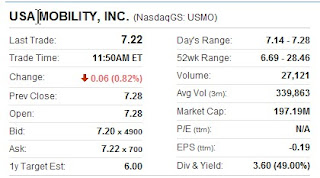
According to a study of college students at the Ernst & Young International Intern Leadership Conference in Orlando, Florida, 59 percent of these young leaders expect to be millionaires within their lifetime. What's more, 5 percent of them expect to hit the million-dollar mark while in their 20s.
And the super-rich are a growing group. The top 0.1 percent of the population's average income was $3 million in 2002, up two and a half times the $1.2 million, adjusted for inflation, that group reported in 1980.
Earned Money vs. Easy Money
Easy money usually comes from inheritance or luck, such as winning the lottery. The track record of people who get their money through the lottery or other windfalls is usually very different from those who created their wealth themselves or who planned for an expected inheritance. Lottery winners are often a sorry lot; more than 90 percent use up their winnings within 10 years -- some go through their money in weeks or months.
But there are some consistent patterns among those people who earn or plan to inherit their money, and these five strategies may be worth emulating.
1. Avoid the Earn-to-Spend Mentality
Michael LeBoeuf, author of The Millionaire in You, points out that to increase wealth, it's essential to emulate millionaires who view money as something to save and invest, rather than income to spend. Many wealthy people live quite simply, he points out, choosing less pretentious homes than they could theoretically afford and opting for financial independence over material showmanship.
2. Focus
LeBoeuf also counsels resisting the impulse to be scattered in your efforts and interests: "Winners focus; losers spray." And goals that are clearly written down are easier to keep in focus.
3. Do Whatever Is Necessary to Meet Your Goal
People who earn their millions are able not only to focus but persevere in the pursuit of their goals. One single mom entrepreneur, Melissa Clark-Reynolds, started her first business, a health and safety consultancy, when she had a young son. En route to her goal of being a millionaire by age 35, Clarke-Reynolds and her son ate lots of pizza, did homework late at night and often slept at the office. She is now a chief executive mentor for Empower New Zealand, a global business consulting firm headquartered in London.
4. Take Calculated Risks
You have to take strategic risks to earn and grow money. And a little rebelliousness seems to help too. One interesting study found a majority of male millionaire entrepreneurs had been in trouble with school authorities or the police during their adolescence.
5. Be Generous
And why doesn't it surprise us that millionaires are often very generous? Sometimes it's for the tax breaks, obviously, but often it's not. One Jewish Swiss millionaire, for instance, flew to Israel to give $5,000 in cash to a waiter at a Jerusalem café who foiled a Palestinian suicide bombing. Among the most generous of millionaires are those from North America, who are, according to a Merrill Lynch Cap-Gemini report, two to five times more likely to give to causes they value than their European counterparts.
These five habits are a pretty good prescription for living happily even if you're not a millionaire.
But LeBoeuf insists it's not so unusual to be a millionaire. As of 2004, there were 8.2 million households with a net worth of more than $1 million. And are the folks in those households happy? Yes, says professor Andrew Oswald of the University of Warwick in the UK. After studying more than 9,000 people over eight years, Oswald concluded that people who come into money are happier. The happiest among them, he says, seem to be "highly educated, well-paid women who have jobs."
And how much money does the professor say it takes to be happy? "About $1 million, give or take a little."















